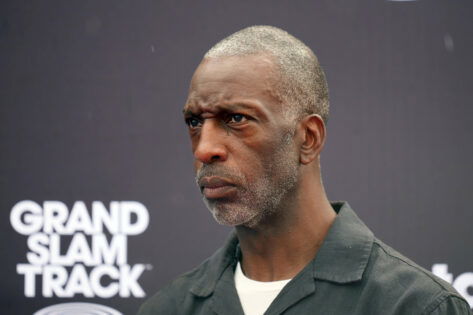When Michael Johnson unveiled Grand Slam Track, it promised to revolutionise the sport — a staggering $12.6 million prize pool, salaries for its 48 core “racers,” and generous appearance fees for the challengers dropping in for single meets. The ultimate prize? A jaw-dropping $100,000 payout for winning an event group — a figure that easily eclipsed earnings from traditional track circuits. The track world buzzed with anticipation. But then came the crash.
The season-ending showdown in Los Angeles was supposed to be the crown jewel. Instead, on June 12, Johnson dropped the bombshell: the LA meet was cancelled, abruptly ending the inaugural season. It wasn’t just disappointing — it sent shockwaves through a sport that had briefly tasted what could’ve been a financial game-changer. Officially, Grand Slam Track has denied any financial turmoil. But the writing is on the wall. Cost-cutting measures surfaced fast: cancelling the LA event and the Philly 5K alone saved them over $3 million. Even so, many athletes remain unpaid for their efforts in Kingston, Miami, and Philadelphia. Worse, frustration is mounting as promises remain just that — promises.
And yet, don’t expect swift intervention from World Athletics. Speaking before the London Diamond League, president Seb Coe admitted he’s been in touch with athletes, agents, and meet directors — but hasn’t spoken to Johnson “for several months.” When asked if World Athletics might step in? Coe offered a guarded, “Well, let’s just watch this space.” Notably, GST executive Kyle Merber emailed a commitment, “We plan to make payments for Kingston prize money before the end of July and the remaining payments due by the end of September, which includes the honouring of Los Angeles appearance fees.” Whether that timeline is achievable is still unclear, but their messaging carries an undeniably cautious tone.
Credit: X/ Michael Johnson
And in such a situation, the athletes are missing the bodies that could have lent support. Interestingly, World Athletics CEO Jon Ridgeon also struck a note of empathy: “We want more high-profile events where the athletes can compete, the fans can watch, athletes can make money. It’s all good, but we sustainably want them. In Michael’s defence, because he is facing some challenges at the moment, it just shows you how hard it is to launch new stuff. In any sport, it’s hard.” For now, Grand Slam Track sits at a crossroads — a bold vision now shadowed by questions of sustainability and credibility. As for the athletes? They can only hope the grand promises don’t fade into grand regrets.
The post World Athletics President Turns His Back on Michael Johnson With Strong Comments Over GST Pay Issue appeared first on EssentiallySports.
